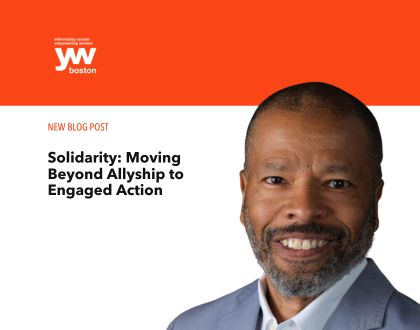
November 28, 2023
By: Ben Perkins
Solidarity: Moving Beyond Allyship to Engaged Action
Solidarity in Diversity, Equity, Inclusion (DEI) efforts embodies unity and support that goes beyond the concept of allyship. While allyship often implies a one-sided relationship where a person of advantage advocates for a marginalized group, solidarity requires mutual support and shared commitment toward achieving equitable outcomes.
Allyship can sometimes be limited to individual acts or public declarations of support, which, while necessary, may translate into something other than systemic change because it is mainly performative. Solidarity, in contrast, is about action and power dynamics. It is a binding force that compels individuals not just to speak or act on behalf of others, but to work alongside them, sharing the risks and burdens of the struggle for equity.
In DEI work, solidarity matters because it acknowledges that the fight against oppression and inequality is a shared struggle that affects everyone. It requires individuals to not only empathize with the oppressed but to engage in the dismantling of structures that perpetuate discrimination actively. Solidarity emphasizes that our liberation and destinies are bound together; none of us are free until all of us are free.
Furthermore, solidarity brings strength and resilience to DEI efforts. It’s about collective action that can confront systemic injustices more effectively than isolated efforts. It calls for everyone to educate themselves, to listen deeply, and to shift from passive support to active participation in creating inclusive environments.
I am heartened by the fact that society increasingly recognizes the interconnected nature of inequity challenges, and solidarity in DEIB work underpins the understanding that diversity is not just about representation but about ensuring equal power, access, and opportunities for all. Solidarity, unlike allyship, is not a badge worn but a practice lived — a cornerstone for the transformative change that DEI work seeks to achieve, and so I offer the following questions for consideration: where do you see the most significant opportunities, personally and professionally, to move from passive support to active participation in DEIB work? And what do you see as the key barriers to making this move?
With those questions in mind, let me suggest YWBoston and LeadBoston communities as powerful resources to help you on your journey. As we often hear, it truly does take a village to do transformational, systems-change work!
Ben Perkins is Founder & CEO of Upstream Impact Solutions Consulting, LLC, a graduate of the LeadBoston class of 2015, and a member of the YW Boston Board of Directors.
About LeadBoston
Our signature leadership program, LeadBoston, supports all individual participants as they create and implement a leadership commitment. This leadership commitment is an action plan that confronts some of the systemic inequities they’ve learned about and that are showing up in their organization. This plan, and the collective LeadBoston experience, empowers leaders to create meaningful change in their workplaces, in their communities, and in the city of Boston itself. Staff work alongside alums for a year following the program to ensure participants have what they need to see their plan through. Learn more here.

